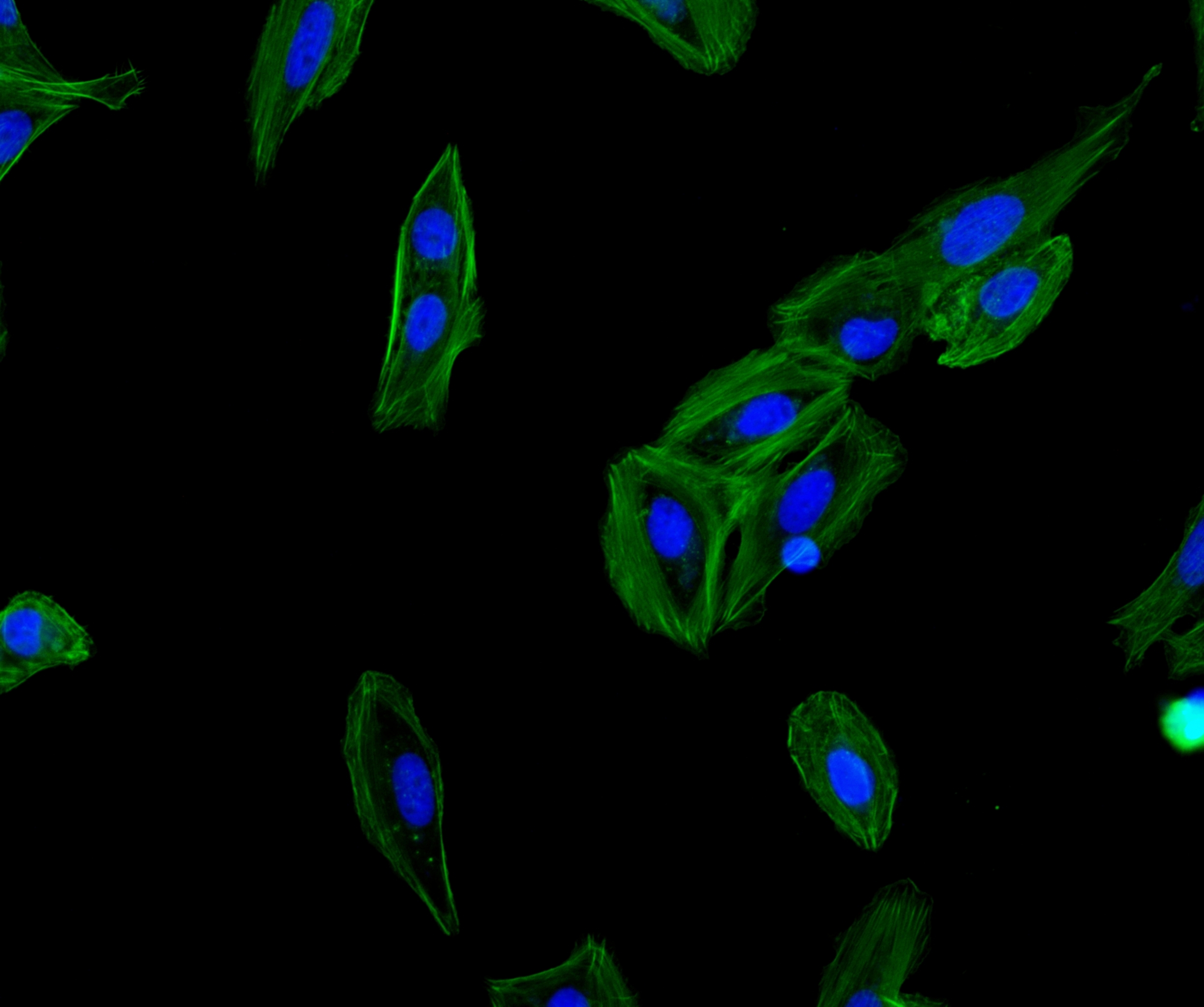| Product name | AbFluor™ 488-Phalloidin |
| Applications notes | AbFluor™ 488-Phalloidin selectively bound to F-actins, it is much higher photostability than the fluorescein-phalloidin conjugates. Phalloidin derivatives are convenient probes for labeling, identifying and quantitating F-actins in formaldehyde-fixed and permeabilized tissue sections, which can stain F-actins in cell cultures or cell-free experiments at nanomolar levels. |
| Alternative | AbFluor™ 488-Phalloidin,BMD00082 |
| Formulation | Lyophilized powder |
| Features & Benefits | • Optimized staining protocol for labeling, identifying and quantitating F-actin in formaldehyde-fixed and permeabilized tissue sections, cell cultures or cell-free experiments. • Proprietary AbFluor™ 488-Phalloidin (Green Fluorescence) (Ex/Em = 490/515 nm)-high-affinity probe for F-actins and much higher photostability than the other fluorescein-phalloidin conjugates. |
| Usage notes | Phalloidin is toxic, it should be handled with care. |
| Storage instructions | Stable for at least 12 months if store at -20°C. Protect this product from light. |
| Shipping | Gel pack with blue ice. |
| Precautions | The product listed herein is for research use only and is not intended for use in human or clinical diagnosis. Suggested applications of our products are not recommendations to use our products in violation of any patent or as a license. We cannot be responsible for patent infringements or other violations that may occur with the use of this product. |
| Background | Phalloidin belongs to a class of toxins called phallotoxins, which are isolated from the death cap mushroom (Amanita phalloides). It is a bicyclic peptide that binds to F-actin specifically. Therefore, the distribution of F-actin can be very conveniently studied by using a fluorescent dye-labeled phalloidin. Inside the phalloidin, there is an unusual thioether bridge between cysteine and tryptophan, which can form an inner ring structure. When the pH is raised, the thioether is cleaved and the phalloidin loses its affinity for actin. |
| Alternative | AbFluor™ 488-Phalloidin,BMD00082 |

Fig. AbFluor™ 488-Phalloidin in Hela cells (200×)
Author:H Zhang, Q Zhu, Y Ji, M Wang, Q Zhang, W Liu Publication name:Aging (Albany NY) IF:5.682
Author:Hua, R., Liu, Q., Lian, W. et al. Publication name:Reproductive Biology and Endocrinology IF:4.982
Author:Y Wang, J Mao, Y Wang, N Jiang, X Shi Publication name:Biomedicines IF:4.7
Author:Wang, Xiaohu, et al. Publication name:Heliyon IF:4
You must be logged in to post a review.
Reviews
There are no reviews yet.